Contents
Choose Dental Implants in Turkey - Affordable Tooth Replacement Option
Key Takeaways
- By choosing Turkey, you can get premium dental implants for up to 70% less than in the UK, USA, or Europe.
- The "best price" is not the lowest price—it's the best value, which includes a specialist surgeon, premium materials, and a transparent, all-inclusive package.
- Top clinics use world-renowned implant brands like Straumann® and Nobel Biocare®, ensuring the highest quality and success rates.
- Always demand a detailed, itemized quote to avoid hidden costs. A trustworthy clinic will be fully transparent.
- Booking during the shoulder seasons (spring and autumn) can often lead to even better prices on flights and accommodation packages.
Did you know that Turkey is becoming a top destination for Dental Implants and Dentistry? With its advanced healthcare facilities and skilled professionals, many international patients are finding great solutions for their dental needs.
In some cases, overcoming problems with teeth is not enough just with general procedures, but also requires more specific procedures such as Dental Implants.
It is widely applied in some cases when the patient loses some or even all of his teeth. Through Dental Implants, you will be able to get the solution you need.
PlacidWay offers you the best options through Dental Implants in Turkey. We offer the best clinics and surgeons that we have filtered in as much detail as possible.
We will give you the following Complete Guide for Full Mouth Implants in Turkey to ease your research about this procedure.
Understanding "Best Price": Why Value Trumps Cost
It can be tempting to choose the clinic with the lowest advertised price, but this can be a costly mistake. A suspiciously low price may indicate several red flags:
- Use of Cheaper, Unproven Implant Brands: Instead of globally recognized brands with decades of research, they may use cheaper clones with no long-term success data.
- Inexperienced Dentists: The procedure might be performed by a general dentist rather than a qualified Oral and Maxillofacial Surgeon.
- Hidden Costs: The low price may only be for the implant itself, with extra charges later for the abutment, crown, scans, and surgical fees.
- Outdated Technology: They may not be using essential technology like 3D CBCT scans for safe and precise planning.
The true "best price" is a fair, competitive price from a reputable clinic that is transparent about every aspect of the treatment. This is the definition of value.
A Checklist for Finding a High-Quality, Fairly-Priced Clinic
- Does the clinic employ specialist Oral Surgeons for implant placement? (This is a must.)
- Do they use 3D CBCT scans for planning every implant case? (This is the standard for safety.)
- Are they transparent about the implant brands they use? (They should proudly name brands like Straumann, Nobel Biocare, etc.)
- Will they provide an official implant passport? (This is your proof of authenticity.)
- Is their quote fully itemized and all-inclusive? (It should list the cost of the implant, abutment, crown, surgery, etc.)
- Do they have a large portfolio of verifiable before-and-after cases? (Look for detailed patient stories, not just photos.)
- Do they offer a written guarantee for their work? (A multi-year guarantee is standard for reputable clinics.)
Full Mouth Dental Implants Turkey Package Deals
For perfect results and the best experience, of course, you need the best choice. We offer you the dental implants Turkey package at the best prices, starting from $325.
Some Packages offer many benefits to patients, such as pick up and drop off for overseas patients, hotels, VIP rooms, and also other conveniences that you can get.
`Cost of Dental Implants in Turkey
Dental implants in Turkey offer a more affordable way to improve your smile. On average, the cost is around $600 to $1,200, making it much cheaper than the $3,000 to $5,000 you’d find in the US. That’s a savings of up to 75%! Quality care is still guaranteed, so explore this option for your dental needs!
Dental Implants Centers Cost Comparison in Turkey
| Provider | Procedure | Price |
|---|---|---|
| Tower Dental Clinic | Dental Implants, Dentistry | $520 |
| ClinicExpert | Dental Implants, Dentistry | $275 |
| Best Clinic in Istanbul | Dental Implants, Dentistry | $500 |
| Novusklinik Istanbul Turkey | Dental Implants, Dentistry | $537 |
Dental Implants Cost Comparison in Turkey
| Country | Procedure | Price |
|---|---|---|
| Canada | Dental Implants, Dentistry | $3000 |
| United States | Dental Implants, Dentistry | $3500 |
| United Kingdom | Dental Implants, Dentistry | $2500 |
Top Clinics for Dental Implants in Turkey
To be able to get the best health care services, of course you have to find the right clinic. So that you don't make the wrong choice, we provide it to you through the list of Dental Implants Clinic in Turkey.
Our partner clinics in Turkey offer a range of dental services, including dental implants, provided by skilled doctors in top-quality facilities. These centers are dedicated to delivering great care for both local and international patients. Explore below to find the right clinic for your needs.
Watch Dental Treatment Videos in Turkey
Find more complete information from Dental Implants Videos in Turkey to add your insight about the clinic's appearance that catches your attention.
You will be able to see how the overview of the relevant clinic, thus assisting you in making a decision. Take advantage of our videos to make your selection smooth.
Dental Implants in Turkey Reviews
Tooth Implant is one of the popular procedures because of its high success rate in treating severe dental problems experienced by patients.
We collect information about Dental Implants Reviews for you as a means to provide you with information about the experiences of real patients undergoing this procedure and what result they get like.
Most Common Questions about Dental Implants in Turkey
What are Dental Implants and how do they work?
Dental implants are artificial tooth roots made from titanium or other materials, designed to support replacement teeth. They are surgically placed into the jawbone, where they fuse with the bone through a process called osseointegration. This provides a stable base for crowns, bridges, or dentures. Dental implants are an excellent option for individuals missing one or more teeth, offering a natural look and feel while restoring functionality. In Turkey, advanced technology and skilled dentists ensure high success rates for dental implant procedures.
Why choose Dentistry in Turkey for Dental Implants?
Turkey is renowned for its high-quality dental care, particularly in dental implants. Many dental clinics in Turkey utilize cutting-edge technology and have experienced professionals. The country also offers a unique blend of affordability and quality, often providing treatments that are up to 70% cheaper than in Western countries. Additionally, Turkey's medical tourism infrastructure supports international patients, making it easier to travel for treatment. Many clinics also offer comprehensive packages that include accommodation and transportation, enhancing the overall experience.
What is the recovery time after Dental Implants in Turkey?
Recovery time after dental implant surgery can vary, but most patients require about 1 to 2 weeks for initial healing. During this time, it’s essential to follow post-operative care instructions provided by your dentist. Depending on individual health and the number of implants placed, full integration of the implant with the jawbone may take 3 to 6 months. It’s crucial to plan for follow-up visits to ensure proper healing and to receive your final restoration. Dentists in Turkey often provide clear timelines and support throughout the recovery process.
How do I choose a reliable dental clinic in Turkey?
Choosing a reliable dental clinic for dental implants in Turkey involves several key steps. Start by researching clinics with strong reputations and positive patient reviews. Look for clinics that are accredited by recognized dental associations and have experienced dental professionals. It's also beneficial to inquire about the technologies used, as advanced equipment can enhance treatment quality. Don't hesitate to contact the clinic directly with questions regarding their procedures, patient care, and follow-up services. This proactive approach will help ensure a safe and successful experience.
What should I do if I have concerns about language barriers in Turkey?
Language barriers can be a concern when traveling for dental implants in Turkey, but many clinics cater to international patients with English-speaking staff. To facilitate communication, consider the following tips:
- Request a translator if needed during consultations.
- Use translation apps on your smartphone to assist in communication.
- Learn a few basic Turkish phrases to ease interactions.
These steps can help ensure you fully understand the treatment process and feel comfortable discussing your needs and concerns with your dental team.
Planning Your Medical Tourism Trip for Dental Implants in Turkey
When planning your trip for dental implants in Turkey, it's essential to cover several logistical aspects for a smooth experience. Here are key considerations to keep in mind:
Pre-Travel Essentials
- Passport Validity: Ensure your passport is valid for at least six months beyond your planned return date.
- Visa Requirements: Check the visa requirements for Turkey based on your nationality, and ensure you have the necessary documents.
- Gather Medical Documents: Collect all relevant medical records and information to share with your dentist in Turkey.
Travel Arrangements
- Booking Flights: Look for flights that offer some flexibility. Consider direct flights for comfort, especially after your procedure.
- Local Transportation: Arrange for airport pickup and transportation to and from your dental clinic to ensure you arrive safely and on time.
Accommodation
You may choose between hotels and specialized recovery houses.
- Consider proximity to the clinic for ease of follow-up visits.
- Ensure the accommodation meets your recovery needs, such as a quiet environment and available support.
Duration of Stay
Plan to stay in Turkey for adequate recovery and follow-up appointments. Most dental implant procedures require a stay of 1 to 4 weeks, depending on individual cases. Follow your dentist's advice to minimize the risks associated with flying too soon after surgery.
Communication
To stay connected, consider purchasing a local SIM card, using international roaming, or opting for an eSIM. Communication apps like WhatsApp can help you stay in touch with family and your dental clinic for any questions or concerns.
Finances
Notify your bank of your travel plans to avoid any issues accessing funds while abroad. Consider having multiple payment options to ensure you can manage expenses comfortably.
How much are Dental Implants in Turkey?
Dreaming of a full, healthy smile but worried about the high costs of dental implants in your home country? Turkey has rapidly become a top destination for dental tourism, offering cutting-edge treatments at remarkably affordable prices. This comprehensive guide answers your most pressing questions about the cost of dental implants in Turkey, helping you navigate your options for a confident new smile. How much are dental implants in Turkey? "The cost of dental implants in Turkey is significantly more affordable than in the United States, UK, Canada, or Europe. A single tooth implant (including implant, abutment, and crown) typically ranges from €350 to €1,350 (approximately $380 to $1,460 USD). For All-on-4 dental implants, the cost per jaw can range from €2,000 to €3,500 (approximately $2,150 to $3,800 USD)." The appeal of dental implants in Turkey lies in their exceptional value. Patients can often achieve a complete smile restoration for a fraction of the cost they would incur back home, sometimes saving as much as 80-90%. What factors influence the cost of a single dental implant in Turkey? "The cost of a single dental implant in Turkey is influenced by the brand of the implant, the material of the crown, the dentist's experience, the clinic's reputation, and whether additional procedures like bone grafting are needed." When considering a single tooth implant, several elements determine the final price. The brand of the titanium implant (e.g., Nobel Biocare, Straumann vs. other quality brands) can affect cost. The material of the final crown (porcelain-fused-to-metal, full ceramic, or zirconia) also plays a significant role, with zirconia being a more aesthetic and durable, albeit more expensive, option. The expertise of your implant dentist and the standing of the clinic itself also contribute to the overall fee. Furthermore, if you require a bone graft or a sinus lift to ensure sufficient bone for the implant, these will add to the total cost. How do All-on-4 dental implant costs in Turkey compare to single implants? "While a single dental implant in Turkey ranges from €350 to €1,350, All-on-4 dental implants offer a full arch solution at a price point per jaw ranging from €2,000 to €3,500 (approximately $2,150 to $3,800 USD), representing a more cost-effective option for replacing multiple teeth." The All-on-4 concept is designed to restore an entire arch of teeth with just four implants, offering a comprehensive and efficient solution. While the upfront cost for All-on-4 is higher than a single implant, it provides a full set of fixed teeth, making it a very economical choice for patients needing extensive restoration. What is the cost range for full mouth dental implants in Turkey? "A full mouth dental implant restoration in Turkey (both upper and lower jaws, potentially using All-on-4, All-on-6, or All-on-8 approaches) typically ranges from €15,000 to €17,000 (approximately $16,200 to $18,400 USD), though this can vary based on the number of implants and prosthetic materials." For patients requiring a complete smile makeover, Turkey offers incredibly competitive prices for full mouth reconstructions. This typically involves placing multiple implants (e.g., 4, 6, or 8 per jaw) to support custom-made bridges that restore both function and aesthetics to the entire mouth. Why are dental implants so much cheaper in Turkey compared to Western countries? "Dental implants are significantly cheaper in Turkey due to a lower cost of living, favorable exchange rates, reduced operational expenses for dental clinics, high competition within the dental tourism sector, and government support for medical tourism." The affordability of dental implants in Turkey isn't a reflection of lower quality, but rather a combination of economic advantages. The overall cost of living and running a business is lower in Turkey, which translates to reduced overhead for dental clinics. The favorable exchange rate for major currencies further amplifies the savings for international patients. A highly competitive market driven by a large volume of medical tourists also encourages clinics to offer attractive pricing. Do clinics in Turkey offer all-inclusive packages for dental implants? "Yes, many reputable dental clinics in Turkey offer comprehensive all-inclusive packages for dental implants, which often cover consultations, X-rays, 3D CT scans, surgery, local anesthesia, temporary and permanent prosthetics, follow-up visits, VIP transfers, and sometimes even accommodation." These packages are designed to provide transparency and convenience, helping patients manage their budget effectively without unexpected costs. Always confirm the exact inclusions of any package you consider. What are the common additional costs for dental implants in Turkey? "Common additional costs for dental implants in Turkey may include bone grafting (if insufficient bone density), sinus lifts (for upper jaw implants), and potentially IV sedation if preferred over local anesthesia. These are typically not part of the base implant cost." While many packages are comprehensive, certain preliminary procedures might be necessary to ensure the success of your implants. Bone grafting adds around €90-€385 per unit, and sinus lifts around €190-€370. It's crucial to discuss these potential needs with your dentist during the consultation. Is the quality of dental implants in Turkey comparable to Western standards despite the lower cost? "Yes, many reputable dental clinics in Turkey adhere to high international standards of quality, employing experienced, often internationally trained implantologists and utilizing state-of-the-art technology and globally recognized implant brands (like Nobel Biocare or Straumann)." The lower cost is generally due to economic factors, not a compromise on quality. Many Turkish dentists are highly skilled specialists with extensive experience in implantology, and clinics invest in modern equipment and high-quality implant materials. What should I look for in a reputable dental clinic for implants in Turkey? "When choosing a dental clinic for implants in Turkey, look for international accreditations, dentists' qualifications and experience in implantology, transparent treatment plans and pricing, positive patient reviews, and clear communication about aftercare and warranties." Thorough research is key. Check for certifications, ask about the dentists' specific training in implant surgery, and read testimonials. Ensure the clinic provides a detailed treatment plan outlining all steps and costs, and clarify their policies on warranties for the implants and prosthetics. How long is the typical process for getting dental implants in Turkey? "The typical process for dental implants in Turkey usually involves two trips: an initial trip for implant placement (2-7 days), followed by a healing period of 3-6 months, and then a second trip for prosthetic placement (5-10 days)." This two-stage process allows sufficient time for osseointegration, where the implant fuses with your jawbone, ensuring a strong and stable foundation for your new teeth. Restoring your smile with dental implants in Turkey offers an appealing combination of affordability and quality. By understanding the costs, the influencing factors, and diligently researching reputable clinics, you can make an informed decision and embark on your journey to a confident, healthy smile. Contact PlacidWay today to explore leading dental clinics in Turkey specializing in dental implants.
How much are full mouth dental implants in Turkey?
Considering full mouth dental implants can be a life-changing decision, and Turkey has emerged as a leading destination for this transformative procedure. The primary draw for many is the significantly lower cost of full mouth dental implants in Turkey compared to countries like the US, UK, or other parts of Europe, without compromising on the quality of care or materials used. This guide will walk you through everything you need to know about getting a full set of dental implants in Turkey, focusing on the expenses and what influences them. The allure of dental tourism in Turkey isn't just about savings; it's about accessing world-class dental facilities, experienced implantologists, and comprehensive care packages. Whether you're looking at All-on-4, All-on-6, or other full mouth restoration techniques, understanding the financial aspect is crucial. Let's dive into the common questions people have when researching full mouth dental implants cost Turkey. How much are full mouth dental implants in Turkey? "The cost of full mouth dental implants in Turkey typically ranges from $2,000 to $13,000 USD (approximately €1,850 to €12,000 or £1,570 to £10,200). However, for comprehensive full mouth restorations involving multiple implants per arch (like All-on-6 or All-on-8), prices can range from approximately $6,000 to $15,000 USD or even higher for premium packages." This price range is a general estimate and can vary significantly based on several factors. While some sources state that a full mouth of implants can start from around $8,450, others mention that All-on-8 implants per arch might cost between $4,400 and $10,000. For a complete full-mouth replacement with implants, some clinics estimate costs between €15,000 and €17,000. It's essential to get personalized quotes from different clinics. The cost is considerably lower than in the US, where it can range from $25,000 to $50,000, or even up to $90,000, and the UK, where it can be between £7,000 and £30,000 or more. The affordability in Turkey is often attributed to lower operational costs, a lower cost of living, and government incentives for medical tourism. What factors influence the cost of full mouth dental implants in Turkey? "Several key factors influence the cost of full mouth dental implants in Turkey, including the number of implants needed, the type and brand of implants used, the material of the final prosthetics (crowns/bridges), the dentist's experience, the clinic's reputation and location, and whether any additional procedures like bone grafting or sinus lifts are required." Let's break these down: Number and Type of Implants: Solutions like All-on-4 dental implants (using four implants per arch) will generally be less expensive than All-on-6 or All-on-8 dental implants (using six or eight implants per arch, respectively). The brand of the implant (e.g., Straumann, Nobel Biocare, Osstem, Megagen) also plays a significant role, with premium international brands costing more than locally manufactured or other well-regarded but more economical brands. Prosthetic Materials: The material for your new teeth (crowns or bridges attached to the implants) affects the cost. Options include porcelain fused to metal (PFM), E-max, or zirconia. Zirconia is often preferred for its durability and aesthetics but is typically more expensive. Clinic and Dentist: Highly reputable clinics in major cities like Istanbul or Antalya, with experienced and internationally trained implantologists, may charge more. However, their expertise can ensure higher success rates and better long-term outcomes. Additional Procedures: If you have insufficient jawbone density, you might need a bone graft or a sinus lift before implant placement. These procedures add to the overall full mouth restoration cost Turkey. Package Inclusions: Many clinics offer all-inclusive packages. It's vital to understand what's covered – typically, this includes the implants, abutments, final prosthesis, dentist fees, X-rays, and sometimes even accommodation and airport transfers. What is the average cost of All-on-4 dental implants in Turkey? "The average cost of All-on-4 dental implants in Turkey typically ranges from $2,600 to $8,500 USD (€2,400 to €7,850 or £2,050 to £6,670) per arch. Some clinics might offer Zirconia All-on-4 implants starting from around $3,339." All-on-4 is a popular full-arch restoration solution that uses four strategically placed implants to support a full denture. This technique is often more affordable than options requiring more implants. The price can still vary based on the brand of implants used (e.g., Nobel Biocare, which is the original All-on-4 system, might be pricier) and the material of the final bridge (e.g., acrylic vs. zirconia). It's a significant saving compared to the US, where All-on-4 can cost $20,000 to $30,000 per arch, or the UK, where it can be upwards of £12,000 per arch. Always confirm what is included in the quoted price. What is the average cost of All-on-6 dental implants in Turkey? "The average cost of All-on-6 dental implants in Turkey is generally between $3,900 and $12,000 USD (€3,600 to €11,100 or £3,070 to £9,420) per arch. Some clinics might state starting prices around $7,500." All-on-6 implants involve placing six implants per jaw, offering increased stability and support for the prosthetic teeth, especially for patients with greater bone loss or those who prefer extra security. Similar to All-on-4, the brand of implants and the type of prosthetic material will influence the final cost. These prices are substantially lower than in Western countries, where All-on-6 can cost upwards of $25,000 in the US or over £13,000 in the UK per arch. Are full mouth dental implants cheaper in Turkey compared to other countries? "Yes, full mouth dental implants are significantly cheaper in Turkey compared to the United States, the United Kingdom, and many other Western European countries. Patients can often save up to 50-70% on the total cost of treatment." The reasons for this considerable price difference include: Lower Operating Costs: Rent, utilities, and administrative expenses for dental clinics are generally lower in Turkey. Lower Labor Costs: The salaries for dentists and dental staff, while competitive for the region, are lower than in countries like the US or UK. Favorable Exchange Rates: For patients from countries with stronger currencies, the exchange rate can make treatments in Turkey even more affordable. Government Support for Medical Tourism: The Turkish government actively promotes medical tourism, which can contribute to more competitive pricing. Despite the lower prices, reputable Turkish dental clinics maintain high standards of care, use internationally recognized implant brands, and employ advanced technology. What is typically included in a full mouth dental implant package in Turkey? "A full mouth dental implant package in Turkey often includes the implant surgery itself (including the titanium posts), abutments, the final prosthetic teeth (dentures or bridges), all necessary consultations, dental scans (like panoramic X-rays or 3D CBCT scans), anesthesia, and laboratory fees. Many clinics also include airport transfers, hotel accommodation, and translation services." It's crucial to get a detailed breakdown of what any package deal includes. Some common inclusions are: Initial consultation and treatment planning Panoramic X-rays and/or 3D (CBCT) scans Cost of the dental implants (titanium posts) Cost of the abutments Temporary dentures (if applicable during the healing period) The final fixed prosthesis (e.g., zirconia or porcelain bridge) Local anesthesia and sedation options (if agreed upon) Post-operative check-ups Medications like antibiotics and painkillers Airport pick-up and drop-off Hotel accommodation for the duration of your stay (or for a specified number of nights) Translator services if needed Always clarify if there are any potential additional costs, such as for bone grafting, sinus lifts, or if different implant brands or prosthetic materials will change the package price. How long does the full mouth dental implant procedure take in Turkey? "The full mouth dental implant procedure in Turkey typically requires two visits. The first visit, for implant placement, usually lasts 3 to 7 days. After a healing period of 3 to 6 months (for osseointegration), a second visit of 6 to 7 days is needed for the placement of the final prosthetic teeth." The timeline can be broken down as follows: First Visit (Implant Placement): Day 1-2: Initial consultation, detailed examination, X-rays/3D scans, and treatment planning. If necessary, any prerequisite treatments like extractions or bone grafting might begin. Day 3-5: Surgical placement of the dental implants. This procedure can take 1-2 hours per implant. Day 6-7: Post-operative check-up, fitting of temporary teeth (if applicable), and instructions for care. Healing Period (Osseointegration): This takes approximately 3 to 6 months. During this time, the titanium implants fuse with your jawbone. You'll typically wear temporary dentures. Second Visit (Final Restoration): Impressions are taken for the permanent crowns or bridges. The final, custom-made prosthetic teeth are fitted onto the healed implants. Adjustments are made to ensure a perfect fit and bite. Some clinics may offer "immediate load" implants where temporary crowns can be placed much sooner, but this depends on individual bone quality and is not suitable for everyone. Is it safe to get full mouth dental implants in Turkey? "Yes, it is generally safe to get full mouth dental implants in Turkey, provided you choose a reputable and accredited clinic with experienced dental professionals. Many Turkish dental clinics adhere to strict international hygiene standards, use FDA or CE-approved materials, and employ highly qualified implantologists." Turkey has become a leading destination for medical tourism, including dental care, due to its investment in modern dental technology and skilled practitioners. To ensure safety: Research Thoroughly: Look for clinics with GCR (Global Clinic Rating) accreditation, ISO certifications, or affiliations with international dental organizations. Check Dentist Credentials: Verify the qualifications and experience of the dentists, particularly their expertise in implantology and full mouth reconstructions. Read Patient Reviews: Look for independent reviews and testimonials on various platforms. Before-and-after photos can also be indicative of the quality of work. Communication: Ensure the clinic has English-speaking staff or provides reliable translation services so you can clearly understand the treatment plan and ask questions. Hygiene Standards: Inquire about their sterilization protocols and infection control measures. While all surgical procedures carry some risk (like infection, implant failure, or nerve damage), these are minimized when performed by skilled professionals in a sterile environment. What types of materials are used for full mouth dental implants in Turkey? "For full mouth dental implants in Turkey, the implants themselves are typically made from biocompatible titanium or sometimes zirconia. The prosthetic teeth (crowns or bridges) attached to these implants are commonly made from materials like porcelain-fused-to-metal (PFM), E-max (lithium disilicate), or zirconia." Implants: Titanium: This is the most common material due to its excellent biocompatibility (it integrates well with bone), strength, and longevity. Most leading implant brands use titanium alloys. Zirconia Implants: These are a metal-free alternative, offering good aesthetics and biocompatibility. They are less common than titanium but are gaining popularity, especially for patients with metal allergies or aesthetic concerns. Prosthetic Teeth (Crowns/Bridges for Full Mouth Restoration): Porcelain-Fused-to-Metal (PFM): A metal substructure with porcelain layered on top. Strong and durable but can sometimes show a grey line at the gum. Zirconia: Highly durable, resistant to chipping, and offers excellent, natural-looking aesthetics. It's a popular choice for full mouth restorations due to its strength and appearance. Often considered a premium option. E-max: A type of all-ceramic crown known for its superior aesthetics and translucency, often used for front teeth. It might be combined with zirconia for full mouth cases. Acrylic: Sometimes used for temporary dentures or as a more budget-friendly option for the final prosthesis in certain All-on-4 cases, though less durable than zirconia or PFM. The choice of material will impact both the cost of full mouth dental implants in Turkey and the final aesthetic outcome. What is the recovery time for full mouth dental implants in Turkey? "The initial recovery period after the implant placement surgery for full mouth dental implants in Turkey is typically a few days, with mild swelling, pain, and tenderness that can be managed with medication. The full osseointegration (fusion of implant to bone) takes about 3 to 6 months, after which the final prosthetics are placed. Full adaptation to the new teeth might take a few weeks more." Here's a general recovery timeline: First 24-48 Hours Post-Surgery: Expect some swelling, bruising, and discomfort. Stick to soft foods and liquids. Avoid smoking and alcohol. First 1-2 Weeks: Swelling and discomfort should gradually subside. Continue with a soft diet. Maintain good oral hygiene as instructed by your dentist (e.g., gentle brushing, antiseptic mouthwash). 3-6 Months (Osseointegration): This is the crucial healing phase where the implants integrate with the jawbone. You will likely have temporary teeth. You should be able to eat most foods, but avoid excessively hard or chewy items that could put stress on the healing implants. After Final Prosthesis Placement: Once your permanent teeth are fitted, there might be a short adjustment period as you get used to speaking and eating with them. Any minor discomfort or bite issues are usually resolved quickly with adjustments by your dentist. Long-term care involves regular brushing, flossing, and dental check-ups, just like natural teeth. Do clinics in Turkey offer a guarantee for full mouth dental implants? "Yes, many reputable dental clinics in Turkey offer a guarantee for full mouth dental implants. This guarantee usually covers the implant screw itself (often for a lifetime against fracture) and the prosthetic work (crowns/bridges) for a period typically ranging from 3 to 5 years against material defects or workmanship issues." However, it's crucial to understand the terms and conditions of any guarantee: Scope of Guarantee: Clarify what is covered. Implant screw failure (e.g., fracture) is often covered for longer periods than the crowns or bridges. Exclusions: Guarantees usually do not cover damage due to accidents, poor oral hygiene, underlying health conditions that affect healing (like uncontrolled diabetes), or normal wear and tear. Biological events such as bone loss or gum recession are typically excluded. Maintenance Requirements: The guarantee may be void if you do not adhere to recommended oral hygiene practices or attend regular dental check-ups. Repairs: Understand the process if a repair is needed. Some clinics may contribute towards minor repairs done in your home country, while others might require you to return to Turkey for more significant issues. Always get the guarantee details in writing before committing to the treatment. This provides peace of mind and demonstrates the clinic's confidence in their work. Are there hidden costs I should be aware of when getting full mouth dental implants in Turkey? "While reputable clinics in Turkey are generally transparent about pricing, potential hidden costs for full mouth dental implants could arise from additional procedures not initially quoted (like extensive bone grafting if severe bone loss is found), upgrades to premium implant brands or prosthetic materials, medications, or follow-up care if complications occur. Always ask for a comprehensive, itemized quote." To avoid surprises: Request a Detailed Treatment Plan and Quote: This should list all included services and materials. Ask specifically what is not included. Discuss Contingencies: Ask about the costs if unforeseen issues arise, such as needing a more complex bone graft than initially anticipated or if an implant fails to integrate. Clarify Package Deals: If opting for an all-inclusive package, confirm exactly what's covered (e.g., number of hotel nights, type of anesthesia, post-op medications). Medication and Aftercare: Ask if post-operative medications and any necessary follow-up consultations (if done locally back home) are included or separate. Travel and Living Expenses: While not "hidden clinic costs," remember to budget for flights, visas (if applicable), meals, and personal expenses during your stay, unless explicitly covered in a comprehensive package. Choosing a clinic that offers transparent pricing and takes the time to explain all potential costs is key. Ready to explore your options for affordable, high-quality full mouth dental implants in Turkey? PlacidWay can connect you with trusted dental clinics and help you find the best solution for your smile and budget. Explore PlacidWay for more information and to get personalized quotes!
Are There Any Unexpected Costs for Dental Treatment in Turkey for Europeans?
Are There Any Hidden Costs for Dental Treatment in Turkey For Europeans? Turkey has become a global hotspot for high-quality, affordable dental care, attracting thousands of international patients each year. The significant price difference compared to countries like the US, UK, and Australia is a major draw. However, the prospect of traveling abroad for dental work can come with concerns about transparency and unexpected expenses. The question on many people's minds is: are there any hidden costs for dental treatment in Turkey? The straightforward answer is that while reputable clinics strive for transparency, potential extra charges can exist if patients are not fully aware of what their treatment package includes. Understanding these potential costs is key to a smooth and stress-free dental tourism experience. This guide is designed to shed light on all the potential hidden costs you might encounter. We will break down what is typically included in the initial quote and what might be considered an 'extra'. From the initial consultation and diagnostic tests to the materials used and aftercare, being well-informed will empower you to ask the right questions and choose a clinic that offers true value and transparency. The goal is to ensure that the attractive price you are quoted is the price you actually pay, with no unwelcome surprises along the way. By the end of this article, you will have a clear understanding of how to navigate the financial aspects of getting your dental work done in Turkey, ensuring your journey to a new smile is as seamless as it is affordable. What is typically included in the advertised price for dental treatment in Turkey for Europeans? "Typically, the advertised price for dental treatment in Turkey for europeans, especially in 'all-inclusive' packages, covers the core dental procedure, the dentist's fees, and often accommodation and airport transfers." When you see a price for dental implants, veneers, or a full smile makeover in Turkey, it usually encompasses the main components of your treatment. For instance, a dental implant package will generally include the implant itself, the abutment, and the crown. Similarly, a veneer package will cover the cost of the veneers per tooth. Many clinics, especially those catering to international patients, bundle their services into packages to simplify the process. These packages often include a set number of nights in a partner hotel and VIP transfers between the airport, hotel, and the clinic. However, it's crucial to remember that the level of inclusivity can vary significantly from one clinic to another. A lower advertised price might not be as comprehensive as a slightly higher one. Always request a detailed breakdown of what is included in the quoted price. This should be a clear and itemized list that leaves no room for ambiguity. A reputable clinic will be more than happy to provide this information, as it builds trust and demonstrates their commitment to transparency. Are initial consultations and X-rays considered extra costs? "In most cases, initial consultations and standard X-rays (like panoramic X-rays) are included in the treatment package at reputable dental clinics in Turkey. However, more advanced scans may incur an additional fee." Most dental clinics in Turkey offer free initial consultations to attract international patients. These consultations can often be done remotely, where you send pictures of your teeth and any existing X-rays for a preliminary assessment. Once you arrive in Turkey, a more thorough in-person consultation will be conducted, which typically includes a panoramic X-ray to assess your overall dental health. For straightforward cases, these initial diagnostic services are usually part of the package. Where you might encounter an extra charge is if you require more detailed imaging, such as a 3D Cone Beam Computed Tomography (CBCT) scan. This type of scan provides a much more detailed view of your jawbone and is often necessary for complex implant placements. While some premium 'all-inclusive' packages may cover the cost of a CBCT scan, many clinics will charge for it separately. It is essential to clarify this with the clinic beforehand, especially if you suspect you might need a more complex procedure. What about the cost of anesthesia? Is it always included? "Local anesthesia is almost always included in the quoted price for dental procedures in Turkey. However, if you opt for or require sedation or general anesthesia, this will likely be an additional cost." For the vast majority of dental treatments, including fillings, crowns, and even standard implant placements, local anesthesia is sufficient to ensure a painless experience. The cost of local anesthesia is minimal and is factored into the overall price of the procedure. You should not expect to see a separate charge for this on your bill. However, for patients who have dental anxiety or are undergoing extensive procedures like a full mouth reconstruction, sedation or even general anesthesia might be an option. These services are provided by a qualified anesthesiologist and require more resources and monitoring, hence they come at an extra cost. If you think you might prefer sedation, you should inquire about the availability and the associated fees when you are getting your initial quote. This will prevent any surprises on the day of your treatment. Are there different prices for different materials for Europeans? "Yes, the type and brand of materials used for your dental treatment can significantly impact the final cost. The initial quote you receive may be for standard materials, with premium options available at an extra charge." This is one of the most common areas where "hidden" costs can appear. For example, when getting dental crowns or veneers, the price will vary depending on whether you choose porcelain-fused-to-metal (PFM), zirconia, or E-max. Zirconia and E-max are considered premium materials due to their superior aesthetics and durability, and they will be more expensive than PFM. Similarly, for dental implants, the brand of the implant plays a crucial role in the cost. A well-known, high-quality implant brand from Switzerland or Germany will cost more than a lesser-known brand. When you receive a quote, it's vital to ask which specific materials and brands are included. If the quote seems significantly lower than others, it might be because it's for standard, lower-cost materials. A transparent clinic will present you with all the options and explain the pros, cons, and price differences of each. This allows you to make an informed decision based on your budget and preferences. What if I need additional procedures like a bone graft or sinus lift? "Additional procedures such as bone grafts, sinus lifts, or tooth extractions are typically not included in the standard price for dental implants and will be charged separately." For a dental implant to be successful, there needs to be sufficient bone density in the jaw to support it. If you have been missing a tooth for a while, you may have experienced bone loss. In such cases, a bone graft is necessary to build up the bone. Similarly, if you are getting implants in the upper jaw, a sinus lift might be required to create enough space for the implant. These are surgical procedures that require additional time, materials, and expertise, and therefore, they are not part of the standard implant price. A good dental clinic will identify the need for these additional procedures during your initial assessment (ideally through a CBCT scan) and include them in your detailed treatment plan and quote from the beginning. However, if the need for a bone graft or sinus lift is only discovered after you have arrived in Turkey, it will be an unexpected but necessary additional cost. To avoid this, it's best to provide the clinic with as much information as possible, including recent X-rays, before you travel. Are temporary crowns or veneers included in the price? "In most comprehensive dental treatment packages in Turkey, the cost of temporary crowns or veneers is included. However, it's always wise to confirm this with your chosen clinic." When you are getting dental crowns or veneers, the process usually involves two stages. In the first stage, your teeth are prepared, and impressions are taken. These impressions are then sent to a dental lab to create your permanent restorations. This process can take a few days. In the meantime, you will be fitted with temporary crowns or veneers to protect your prepared teeth and maintain your appearance. The cost of these temporary restorations is usually factored into the overall price of your treatment. However, you should not take this for granted. Some clinics might offer a very low baseline price that excludes temporaries. It's a simple but important question to ask during your consultation. Ensuring that temporaries are included will prevent the inconvenience of having to pay extra for them or, in a worst-case scenario, having to go without them while you wait for your permanent restorations. What are the costs for aftercare and follow-up appointments? "Immediate aftercare and follow-up appointments within your treatment period in Turkey are generally included. However, long-term follow-up care in your home country will be your own responsibility and cost." Reputable dental clinics in Turkey will provide you with all the necessary aftercare instructions and any immediate follow-up appointments required before you head back home. This is part of ensuring a successful treatment outcome. You will also be given a supply of any necessary medications, such as painkillers or antibiotics, which are usually included in the package price. The "hidden" cost in this area relates to long-term care. Dental implants, for example, require regular check-ups and professional cleanings, just like natural teeth. These ongoing maintenance appointments will need to be done with a dentist in your home country, and you will be responsible for these costs. It's important to factor in the long-term maintenance costs when considering the overall affordability of getting dental treatment abroad. Do I have to pay for medication separately? "Most all-inclusive dental packages in Turkey include the cost of essential medications required immediately after your procedure, such as antibiotics and painkillers." When you undergo a dental procedure like an extraction, root canal, or implant placement, your dentist will likely prescribe antibiotics to prevent infection and painkillers to manage any discomfort. The cost of these initial medications is typically included in your treatment package. The clinic will usually provide you with the necessary supply to cover the first few days of your recovery. However, if you require any special medication due to a pre-existing condition or if you need a repeat prescription after you have finished the initial supply, you may have to pay for it separately. It's always a good idea to bring any regular medications you take from home and to clarify with the clinic what is included in terms of post-operative medication. Are there any hidden fees related to travel and accommodation in "all-inclusive" packages? "While 'all-inclusive' packages are designed to cover your accommodation and transfers, there can be hidden fees related to flight tickets, hotel upgrades, extra nights, or personal expenses." The term "all-inclusive" in the context of dental tourism in Turkey usually refers to the dental treatment, accommodation, and ground transfers. Your flight tickets are almost always your own responsibility. When it comes to accommodation, the package will typically include a specific number of nights in a standard room at a partner hotel. If you wish to upgrade to a better room, stay for extra nights, or have a companion stay with you, there will be additional charges. Furthermore, your personal expenses, such as food, sightseeing, and shopping, are not included in the package. It's important to budget for these separately. To avoid any misunderstandings, ask the clinic for the name of the hotel and what is included in the accommodation (e.g., breakfast). This will help you plan your budget more accurately. What happens if there are complications? Are correction procedures free? "Reputable dental clinics in Turkey provide a warranty or guarantee for their work. Minor adjustments are usually free, but the terms for correcting more significant complications can vary." This is a critical aspect to clarify before you commit to any treatment. A good clinic will stand by its work and offer a warranty, especially for procedures like implants and crowns. This warranty should cover any defects in the materials or workmanship. For example, if a crown cracks or an implant fails within the warranty period, the clinic should rectify the issue at no extra cost for the dental work itself. However, you will likely have to cover your own travel and accommodation expenses for the return trip. It's essential to get the warranty terms in writing. Understand what is covered, for how long, and what might void the warranty (e.g., poor oral hygiene or getting work done on the same tooth by another dentist). A transparent clinic will have a clear and fair warranty policy. How can I get a fully transparent and all-inclusive quote? "To get a fully transparent and all-inclusive quote, you must provide the clinic with detailed information about your dental health, including recent X-rays, and ask for an itemized breakdown of all potential costs." The key to avoiding hidden costs is proactive and clear communication. Don't just accept the initial price you are given. Engage with the clinic's patient coordinator and ask detailed questions. Here’s how you can ensure transparency: Provide comprehensive information: Share clear photos of your teeth and gums, and if possible, a recent panoramic X-ray. The more information the dentist has, the more accurate your initial treatment plan and quote will be. Request an itemized quote: Ask for a detailed written quote that lists every single component of your treatment, including the consultation, X-rays, the procedure itself, the materials to be used, anesthesia, temporary restorations, and aftercare. Discuss potential additional procedures: Ask the dentist if they foresee the need for any other treatments, like a bone graft or extractions, and what the costs for these would be. What specific questions should I ask my dental clinic to avoid hidden costs? "To avoid hidden costs, you should ask your dental clinic in Turkey a series of specific questions about what is included in the quote, the materials they use, their warranty policy, and any potential additional charges." Being prepared with a list of questions can save you a lot of money and stress. Here are some essential questions to ask: Is the price quoted a package deal? What exactly does it include? Are there any additional charges for consultations, X-rays, or 3D scans? What type and brand of materials will be used for my crowns/veneers/implants? Are there other options, and what are the price differences? Is the cost of local anesthesia, sedation, or general anesthesia included? Will I need any additional procedures like a bone graft or sinus lift? If so, what is the cost? Is the cost of temporary restorations included? What does the warranty cover, and for how long? Do I have to pay for travel and accommodation if a correction is needed? What are the payment terms? Are there any fees for using a credit card or for currency exchange? Are there any currency exchange or payment processing fees? "Yes, there can be additional fees related to currency exchange and payment processing when paying for your dental treatment in Turkey. It's important to clarify the accepted payment methods and any associated charges." Most dental clinics in Turkey will quote their prices in Euros, US Dollars, or British Pounds for international patients. When you pay, the final amount in your home currency will depend on the exchange rate at that time. If you are paying by credit card, your bank may charge a foreign transaction fee. Some clinics may also add a small percentage (typically 2-3%) for credit card payments to cover their own processing fees. To keep costs down, you might consider paying in cash, but be mindful of the risks of carrying large amounts of money. Another option is a bank transfer, but check for any fees from your bank. The best approach is to discuss all payment options with the clinic in advance and choose the one that is most cost-effective for you. Do I need to pay for a translator? "At most dental clinics in Turkey that cater to international patients, translation services are provided free of charge. The staff, including dentists and patient coordinators, are often fluent in English and other languages." Language barriers are a common concern for medical tourists. However, the top dental clinics in Turkey have invested heavily in creating a welcoming environment for international patients. This includes having multilingual staff. Your patient coordinator, who will be your main point of contact, will likely be fluent in your language. The dentists themselves often have excellent English skills, having trained or attended conferences internationally. It is highly unlikely that you would need to hire and pay for your own translator. However, it's always a good idea to confirm this with the clinic. A good clinic will ensure that you can communicate effectively and comfortably throughout your treatment journey. How do I ensure the quoted price is the final price? "To ensure the quoted price for your dental treatment in Turkey is the final price, you need to choose a reputable clinic, get a detailed and itemized treatment plan in writing, and have a clear understanding of the clinic's warranty and complication policies." Ultimately, the best way to avoid hidden costs is to do your due diligence. Here's a summary of the key steps: Research and choose a reputable clinic: Look for clinics with a long history of treating international patients, positive reviews, and international accreditations. Have a thorough remote consultation: Provide them with all the necessary information to create an accurate initial plan. Get everything in writing: Your treatment plan should be detailed and itemized. Your warranty policy should be clear and comprehensive. Ask questions: Don't be shy about asking all the questions we've outlined in this guide. A good clinic will welcome your questions. By taking these steps, you can be confident that the attractive price you are quoted for your dental treatment in Turkey will be the final price you pay, allowing you to focus on what truly matters: achieving a healthy and beautiful smile. Ready to explore your options for high-quality, affordable dental care in Turkey? PlacidWay can help you connect with trusted and pre-screened dental clinics. Explore our network of world-class dental providers and get a free, no-obligation quote for your personalized treatment plan. Your journey to a new smile starts here!
What Do All-Inclusive Dental Packages in Turkey Include?
Turkey has firmly established itself as a premier destination for dental tourism, offering a compelling blend of high-quality care, advanced technology, and significantly lower prices. A key reason for its popularity is the widespread availability of all-inclusive dental packages. These packages are designed to simplify the entire process for international patients, bundling multiple services into a single, transparent price. The idea is to remove the stress and uncertainty of arranging treatment in a foreign country, allowing you to focus solely on achieving your new smile. But what exactly does "all-inclusive" mean in this context? For anyone considering dental work in Turkey, understanding the components of these packages is crucial. While they offer incredible convenience and value, the specifics can vary from one clinic to another. This guide will provide a detailed and comprehensive look into what you can typically expect from an all-inclusive dental package in Turkey in 2025. We will explore the core dental treatments, the logistical arrangements like accommodation and transfers, and the supporting services that make the journey smoother. We'll also shed light on what is often left out of these packages, so you can plan your budget accurately and avoid any unwelcome surprises. By the end of this article, you will have a clear and realistic picture of what a dental holiday in Turkey truly entails. What is the core component of any all-inclusive dental package? "The core component of any all-inclusive dental package is the dental procedure itself. This includes the cost of the materials (like implants or veneers), the dentist's fees, and laboratory costs for creating the restorations." At the heart of every package is the specific dental treatment you are traveling for. Whether you are getting a full set of dental veneers, dental implants, or a complete smile makeover, the cost of this procedure forms the foundation of the package price. This typically covers all necessary clinical steps, from tooth preparation to the final fitting of your new crowns or veneers. For example, an all-inclusive dental implant package will usually cover the cost of the implant post, the abutment (the connecting piece), and the final crown. A veneer package will include the price per veneer, the lab work involved in fabricating them, and the dentist's time for preparation and bonding. A reputable clinic will be transparent about the brands and materials used, as premium options (like Straumann implants or E-max veneers) can influence the overall package price. Does the package include initial consultations and diagnostic tests? "Yes, all-inclusive packages almost always include the initial consultation upon arrival and standard diagnostic tests like a panoramic X-ray. Some premium packages may also include 3D/CT scans." To create an accurate treatment plan, your dentist needs to perform a thorough examination. All-inclusive packages facilitate this by including the necessary diagnostic steps in the price. This typically starts with a remote consultation before you travel, where you might share photos and existing records. Upon your arrival in Turkey, a comprehensive in-person examination is conducted. This examination will always include a panoramic X-ray, which gives a broad overview of your teeth and jaw. For more complex procedures like All-on-4 dental implants, a 3D Cone Beam Computed Tomography (CBCT) scan is often required for precise planning. While some clinics include this advanced scan in their premium packages, others may charge for it separately. It's an important question to ask, as a CBCT scan is vital for the success and safety of implant surgery. Is accommodation part of the all-inclusive deal? "Accommodation is a key feature of all-inclusive dental packages in Turkey. Clinics typically provide a set number of nights in a 4 or 5-star partner hotel, often including breakfast." One of the biggest conveniences of these packages is having your accommodation sorted. Dental clinics have partnerships with nearby hotels to offer patients a comfortable and convenient stay. The package will specify the number of nights included, which is calculated based on the duration of your treatment. For example, a veneer treatment might include 7 nights, while a more complex implant procedure requiring two visits will have accommodation included for both trips. The standard offering is a single or double room, and breakfast is commonly included. It's important to clarify the specifics, such as the name of the hotel, the type of room, and the cost for any additional nights or for a travel companion if not already included. This logistical support significantly reduces the stress of planning your trip. Are airport and clinic transfers included? "Yes, VIP transfers are a hallmark of all-inclusive dental packages. This service includes being picked up from the airport, and all transportation between your hotel and the dental clinic for your appointments." Navigating a new city can be daunting, especially when you're there for a medical procedure. All-inclusive packages eliminate this concern by providing dedicated transfer services. From the moment you land, a representative from the clinic is typically there to greet you and take you to your hotel in a comfortable, private vehicle. Furthermore, all your travel to and from the clinic for your various appointments is completely taken care of. This punctual and hassle-free service ensures you are always on time for your appointments without having to worry about public transport or taxis. This 'VIP' treatment is a significant part of the patient experience and a major selling point for these packages. What about flights? Are they included in the price? "No, international flights are almost never included in all-inclusive dental packages in Turkey. Patients are responsible for booking and paying for their own airfare to and from their home country." This is the most common misconception about "all-inclusive" dental tourism. While the package covers most of your expenses on the ground in Turkey, the journey to get there is your responsibility. The cost and logistics of flights vary dramatically depending on the patient's location, the time of year, and how far in advance they book. Clinics do not include flights to keep the package prices competitive and to give patients the flexibility to choose their preferred airline, travel dates, and departure airport. When budgeting for your dental trip, you must factor in the cost of round-trip airfare as a separate and significant expense. Is food and drink covered by the package? "Generally, food and drinks are not included in all-inclusive dental packages, with the common exception of breakfast at the hotel. All other meals and personal expenses are the patient's responsibility." While your accommodation often comes with complimentary breakfast, you will need to budget for your lunches, dinners, snacks, and any other personal spending. This gives you the freedom to explore Turkey's rich culinary scene and dine according to your own preferences and budget. Some clinics may offer light refreshments during your appointments, but your daily meals are not part of the deal. This is an important distinction from an "all-inclusive" resort holiday. Factoring in an average daily cost for food will help you create a more accurate overall budget for your trip. Are temporary teeth and aftercare medications included? "Yes, a comprehensive all-inclusive package will include the cost of temporary restorations (like crowns or veneers) and any necessary post-procedure medications such as painkillers and antibiotics." During procedures like smile makeovers or implants, temporary teeth are essential. They protect the prepared teeth and allow you to eat and smile comfortably while your permanent restorations are being custom-made in the lab. The cost of these temporaries is a standard inclusion in good packages. Similarly, to ensure a smooth recovery, clinics provide a starter pack of necessary medications. This typically includes pain relievers to manage any discomfort and antibiotics to prevent infection. You won't have to worry about finding a pharmacy immediately after your procedure, as this is all taken care of for you. What kind of guarantees or warranties are part of the package? "Reputable clinics back their work with a warranty, which is an integral part of the all-inclusive package. This typically covers material failure or workmanship issues for a specified period." A good warranty is a sign of a clinic's confidence in its work and materials. For dental implants, it's common to see a lifetime guarantee on the implant screw itself. For restorations like crowns and veneers, warranties typically range from 5 to 10 years. It is vital to get the warranty details in writing. Understand what is covered (e.g., a cracked crown) and what is not (e.g., damage from an accident or poor oral hygiene). The warranty covers the cost of the corrective dental work, but be aware that you would likely still be responsible for the cost of flights and accommodation for a return trip if needed. Do packages include translation services? "Yes, translation and patient hosting services are included. Clinics that cater to international patients have a dedicated, multilingual team to ensure clear communication and support throughout your journey." The language barrier is a common concern, but top Turkish dental clinics have this completely covered. You will be assigned a patient coordinator or host who speaks your language fluently. This person will be your main point of contact, helping you with everything from understanding the treatment plan to asking the dentist questions. This seamless communication ensures you are fully informed and comfortable at every stage. The dentists and clinical staff also typically have a high level of English proficiency. This focus on communication is key to a positive and stress-free patient experience. Are follow-up appointments in Turkey included? "All necessary follow-up appointments and final check-ups that take place during your stay in Turkey are included in the all-inclusive package price." Your treatment doesn't end the moment you leave the dentist's chair. The package price covers any required check-ups before you fly home. For veneers, this would be the final fitting and bite check. For implants, it would be a post-surgical review to ensure everything is healing correctly. These appointments are crucial for the long-term success of your treatment. The clinic wants to ensure you are happy and that the work is perfect before you depart. However, any long-term, routine check-ups you have with your local dentist back home are not covered. What is explicitly NOT included in all-inclusive dental packages? "Exclusions from all-inclusive dental packages universally include international flights, food and drink (besides hotel breakfast), travel insurance, and personal expenses for tourism or shopping." Understanding the exclusions is just as important as knowing the inclusions. To summarize, here is a list of what you will need to budget for separately: International Flights: You must book and pay for your own airfare. Most Meals: Budget for lunches, dinners, and any other food and drink. Travel Insurance: It is highly recommended to get comprehensive travel insurance for your trip. Personal Expenses: Any money for sightseeing, tours, or shopping is your own responsibility. Complex Additional Procedures: Unexpected needs like a bone graft or sinus lift, if not identified initially, may be extra. A good clinic will quote this upfront after a CT scan. Long-term Aftercare: Routine dental check-ups and hygiene appointments back in your home country. How do I verify what my specific package includes? "To verify the exact inclusions of your package, you must request a detailed, itemized treatment plan and quotation in writing from the all-inclusive clinic before making any payment or booking flights." Never rely on assumptions. The key to a successful dental tourism journey is clear and transparent communication. A reputable clinic will be happy to provide you with a formal document that lists every single service included in the price. This document should detail the dental procedure, the material brands, the number of hotel nights, the specifics of the transfer services, and the terms of the warranty. Review this document carefully and ask questions about anything that seems unclear. This written confirmation is your contract with the clinic and your best tool for ensuring there are no hidden costs or misunderstandings down the line. A transparent clinic builds trust from the very first interaction. Ready to explore a seamless and affordable dental experience? PlacidWay connects you with top-tier, pre-vetted clinics in Turkey that offer transparent, all-inclusive dental packages. Let us help you find the perfect solution for your smile transformation. Explore your options and receive a free, personalized quote today!
What Are The Qualifications and Experience of Turkish Dentists?
As Turkey solidifies its reputation as a premier destination for world-class dental care, a primary question for prospective patients is: what are the qualifications and experience of Turkish dentists? When traveling abroad for medical procedures, it's natural and wise to seek assurance about the expertise of the professionals who will be performing your treatment. The affordability of dental work in Turkey can sometimes lead to the misconception that the standards of care or the dentists' qualifications might be lower. However, the reality is quite the opposite. The Turkish dental education system is robust, highly regulated, and aligned with international standards, producing a generation of highly skilled and experienced practitioners. The journey to becoming a licensed dentist in Turkey is a long and demanding one, involving years of intensive academic study and hands-on clinical practice. Furthermore, the system for specialization is equally rigorous, requiring dentists to pass competitive national exams and dedicate several more years to advanced training in specific fields like oral surgery, prosthodontics, or orthodontics. This commitment to education is bolstered by a strong regulatory framework overseen by the Turkish Ministry of Health and the Turkish Dental Association (TDA). This guide will provide a comprehensive overview of the entire process, from university education to specialist training and ongoing professional development, giving you the confidence that you are in highly capable and expert hands when you choose a reputable dentist in Turkey. What is the standard educational path for a dentist in Turkey? "The standard educational path to become a dentist in Turkey is a comprehensive 5-year Master's degree program at a faculty of dentistry, which is an integrated program combining undergraduate and graduate level studies." The journey to becoming a dentist in Turkey begins with a highly competitive university entrance exam. Once admitted to a dental faculty, students embark on an intensive 5-year program. This is not equivalent to a simple bachelor's degree; it's a Master's level qualification (DDS or DMD) that integrates foundational sciences with advanced clinical skills. This single-tier system ensures that every graduate has a deep and thorough understanding of dental medicine from both a theoretical and a practical standpoint. Unlike some systems where a separate graduate degree is required after an undergraduate science degree, the Turkish model is a direct path. This allows for a focused and cohesive curriculum where students are immersed in dental sciences from day one. Upon successful completion of the five years and passing all requisite exams, graduates earn the title of "Di? Hekimi" (Dentist). How rigorous is the dental curriculum in Turkish universities? "The dental curriculum is extremely rigorous, with the first two years focused on preclinical theoretical sciences like anatomy and pharmacology, and the final three years dedicated to intensive, hands-on clinical training on actual patients." The 5-year program is strategically divided to build a strong foundation before moving to complex practical applications. The structure typically looks like this: Years 1-2 (Preclinical): Students delve into fundamental medical and dental sciences. This includes anatomy, physiology, biochemistry, pharmacology, pathology, and dental anatomy. This phase provides the essential scientific knowledge required to understand oral health and disease. Year 3 (Transition): This year serves as a bridge, where students begin practical work on phantom heads and models in simulation labs while continuing advanced theoretical coursework. They start to learn the manual dexterity and techniques for procedures like fillings and crowns. Years 4-5 (Clinical): These years are spent in university dental hospitals or affiliated clinics. Students work directly with patients under the close supervision of experienced professors and specialists. They rotate through all departments—prosthodontics, periodontics, endodontics, surgery, etc.—gaining comprehensive, real-world experience in diagnosing and treating a wide variety of dental issues. Are Turkish dental degrees recognized internationally? "Yes, dental degrees from Turkish universities are recognized in many countries worldwide, especially throughout Europe, as the curriculum is aligned with the Bologna Process, ensuring compatibility with European higher education standards." The Bologna Process is a series of agreements between European countries to ensure comparability in the standards and quality of higher-education qualifications. Turkey is a full member of this process. This means that its university system, including its dental faculties, is structured to be compatible with those across Europe. This alignment facilitates academic and professional mobility for graduates. While direct registration in another country always depends on that specific country's dental board regulations (and may require passing local licensing exams), the foundational degree from a reputable Turkish university is well-respected. Many Turkish dentists use this strong educational base to pursue further training or fellowships in the USA, UK, Germany, and other leading nations, further enhancing their global credentials. How do Turkish dentists specialize in fields like oral surgery or implantology? "To become a specialist, a general dentist must pass a highly competitive national examination called the DUS (Di?hekimli?i Uzmanl?k S?nav?) and then complete an additional 3 to 4 years of full-time hospital-based training in their chosen specialty." Graduating with a 5-year dental degree makes you a general dentist. To earn the title of "Specialist," such as an Oral and Maxillofacial Surgeon or a Prosthodontist, is a separate and even more demanding path. The DUS exam is the gateway to this advanced training. It's a challenging, centralized exam, and only the highest-scoring candidates gain entry into the limited number of specialty training positions available at university hospitals. This specialty training is not a part-time course; it is a full-time residency. For instance, an aspiring oral surgeon will spend four years working exclusively in a hospital's surgery department, performing complex procedures from wisdom tooth extractions to advanced dental implant placements and bone grafting, all under the mentorship of senior surgeons. This ensures that a certified specialist has an incredibly deep level of knowledge and practical experience in their specific field. What are the most common dental specialties in Turkey? "The officially recognized dental specialties in Turkey include Oral and Maxillofacial Surgery, Prosthodontics, Orthodontics, Periodontology, Endodontics, Pedodontics (Pediatric Dentistry), and Oral Diagnosis and Radiology." When you seek treatment at a high-quality Turkish clinic, you will often find a team of different specialists. This multidisciplinary approach ensures you receive care from a dentist with the most advanced training for your specific needs. Here’s what some of these specialists do: Oral and Maxillofacial Surgeon: The expert for all surgical procedures, including placing dental implants, performing bone grafts, sinus lifts, and complex extractions. Prosthodontist: The specialist in restorative dentistry. They are experts in designing and fitting crowns, bridges, veneers, and dentures, essentially "rebuilding" a smile. Periodontist: The specialist for gum health. They treat gum disease and may also place dental implants, focusing on the health of the supporting bone and gum tissues. Endodontist: The expert on the inside of the tooth, specializing in root canal treatments. Orthodontist: The specialist for aligning teeth and jaws using braces or clear aligners. Is it mandatory for dentists in Turkey to be licensed? "Yes, it is absolutely mandatory. To practice dentistry legally in Turkey, every dentist must be registered with the Turkish Ministry of Health and be a member of the Turkish Dental Association (TDA)." There is no legal way to practice dentistry in Turkey without being officially licensed and registered. This is a crucial patient protection measure. The process involves verifying the dentist's university diploma and ensuring they have no professional or legal impediments to practicing. This registration is a public record and provides a fundamental layer of assurance for patients. Any reputable clinic will be transparent about the registration of its dentists. You have the right to ask for a dentist's registration details, and a trustworthy provider will have no hesitation in sharing this information. This system ensures a baseline of verified qualifications for every practicing dentist in the country. What is the role of the Turkish Dental Association (TDA)? "The Turkish Dental Association (TDA) is the main professional and regulatory body for dentists in Turkey. It oversees ethical standards, promotes continuous education, and advocates for the profession and public oral health." The TDA plays a vital role in maintaining the high standards of dentistry in Turkey. Membership is compulsory for all practicing dentists. The association is responsible for several key functions: Ethical Guidelines: It sets and enforces the code of professional ethics that all dentists must follow. Continuing Education: The TDA organizes and promotes congresses, seminars, and courses to ensure dentists stay up-to-date with the latest advancements in dental technology and techniques. Public Health Initiatives: It works to improve the nation's oral health through public awareness campaigns. Professional Advocacy: It represents the interests of dentists and works with the Ministry of Health on regulations and policies. How much experience do dentists in popular Turkish clinics typically have? "Dentists in clinics that cater to international patients often have extensive experience, treating a high volume of cases that allows them to hone their skills rapidly, particularly in complex procedures like full mouth restorations and dental implants." Experience is not just measured in years, but in the number and complexity of cases handled. Because Turkey is a hub for dental tourism, top clinics perform a vast number of procedures like dental implant placements and smile makeovers every year. An oral surgeon in a busy Turkish clinic might place hundreds, if not thousands, of implants annually—a volume that a dentist in a smaller local practice elsewhere might not see in a decade. This high case volume leads to a deep level of practical expertise and efficiency. They become masters of their craft, comfortable with a wide range of clinical scenarios and adept at achieving predictable, high-quality results. This hands-on experience is one of the most significant, yet often overlooked, advantages of seeking treatment from a specialist in a major Turkish dental center. Do Turkish dentists have international training or certifications? "Yes, it is very common for leading Turkish dentists, especially specialists, to have pursued additional training, fellowships, or certifications from prestigious institutions in Germany, the USA, the UK, and other European countries." The best dentists are committed to lifelong learning. Many of Turkey's top dental professionals actively seek out international training to complement their domestic education. They attend global conferences, participate in workshops with world-renowned experts, and become members of international dental organizations like the International Team for Implantology (ITI) or the American Academy of Cosmetic Dentistry (AACD). This pursuit of international knowledge ensures they are proficient in the very latest global techniques and treatment philosophies. When choosing a dentist, you can often see these international certifications proudly displayed on their clinic's website or in their office. This is a strong indicator of a dentist who is dedicated to providing care at the highest possible global standard. What should I look for to verify a dentist's qualifications? "To verify a dentist's qualifications, you should ask for their university diploma, specialization certificate if applicable, their Turkish Dental Association (TDA) registration number, and look for memberships in reputable international dental organizations." A reputable clinic and a confident dentist will be fully transparent about their credentials. Don't be hesitant to ask for this information. Specifically, you can look for: University Diploma: Verifies their 5-year dental degree. Specialization Certificate: If they claim to be a specialist (e.g., Oral Surgeon), they must have a certificate from the university hospital where they completed their 3-4 year residency. TDA Membership: Confirmation of their license to practice in Turkey. International Certifications: Look for certificates from well-known implant companies (e.g., Straumann, Nobel Biocare) or international dental societies, which show advanced training. Ready to connect with highly qualified and experienced dentists in Turkey? PlacidWay provides access to a network of pre-vetted, accredited clinics with proven track records. Find the right specialist for your needs and get a free, no-obligation quote for your treatment plan. Your journey to a confident smile begins with a trusted expert!
What is The Price of Veneers in Turkey for UK patients?
"The price of veneers in Turkey for UK patients is significantly lower than in the UK, typically ranging from £100 to £250 per tooth for composite veneers and £175 to £300 for porcelain or E-max veneers, while in the UK, a single veneer can cost between £500 and £1,500." Many individuals from the UK are increasingly looking abroad for cosmetic dental treatments, with Turkey emerging as a particularly popular destination. The allure of a smile makeover at a fraction of the cost found at home is undeniable. This guide aims to provide a comprehensive overview of veneer prices in Turkey for UK patients, alongside crucial information regarding the types of veneers available, the treatment process, safety considerations, and what to look for when choosing a clinic. We will highlight the substantial savings that can be made, whilst also addressing any potential concerns, ensuring you are well-informed to make the best decision for your dental health and aesthetic goals. What is the average cost of a single veneer in Turkey? "The average cost of a single veneer in Turkey typically ranges from £100 for composite veneers to around £175-£300 for porcelain, E-max, or Zirconia veneers, depending on the clinic, the material chosen, and the complexity of the case." This pricing usually covers the veneer itself and its placement. Variations in cost can stem from the clinic's reputation, the dentist's experience, the specific city (e.g., Istanbul, Antalya, Izmir), and the technology used. Even with these differences, the prices remain considerably more affordable than those found in the UK, making Turkey an attractive option for a smile transformation. Many clinics also offer all-inclusive packages that can include accommodation and transfers, further enhancing the value. What is the average cost of a single veneer in the UK? "In the UK, the average cost for a single veneer generally ranges from £500 for composite veneers to £1,500 for porcelain veneers, and can even exceed this for premium materials or complex cases." This substantial price difference is a primary reason why many UK patients consider travelling to Turkey for their veneer treatment. The higher operational costs in the UK, including clinic overheads, labour expenses, and laboratory fees, contribute to these elevated prices. For patients requiring multiple veneers, the savings can be truly significant, even when factoring in travel and accommodation expenses. Why are veneers cheaper in Turkey than in the UK? "Veneers are cheaper in Turkey than in the UK mainly due to lower operational costs for dental clinics, a favourable exchange rate for the Turkish Lira, government incentives promoting medical tourism, and a highly competitive dental market." The overall cost of living and running a business in Turkey is considerably lower than in the UK. This translates directly to reduced expenses for dental practices, including rent, staff wages, and even the cost of dental materials and laboratory work. The Turkish government actively supports and promotes medical tourism, which contributes to competitive pricing. Furthermore, the large number of dental clinics in major Turkish cities creates a competitive environment, encouraging clinics to offer high-quality services at more accessible prices to attract international clients. The exchange rate also plays a significant role, as the British Pound often has strong purchasing power against the Turkish Lira. What factors influence the total cost of veneers in Turkey? "The total cost of veneers in Turkey can be influenced by the type of material chosen (composite, porcelain, E-max, Zirconia), the number of veneers required, the reputation and location of the clinic, any additional preparatory treatments needed, and whether the package includes ancillary services like accommodation and transfers." Type of Material: Composite Veneers: Generally the most affordable option, made from a tooth-coloured resin applied directly to the tooth. Porcelain Veneers: More expensive than composite, offering superior aesthetics, durability, and stain resistance. This category includes standard porcelain, E-max (lithium disilicate), and Zirconia. E-max Veneers: A type of porcelain veneer known for its natural translucency and strength, often chosen for highly aesthetic results. Zirconia Veneers: Extremely strong and durable, often recommended for back teeth or patients with a strong bite, though can also be used for anterior teeth. Number of Veneers: The more veneers you opt for, the higher the overall cost. However, many clinics offer discounted rates for larger sets (e.g., a "Hollywood Smile" package for 16-20 veneers). Clinic Reputation and Location: Well-established clinics with advanced technology and highly experienced dentists, particularly in popular tourist cities like Antalya or Istanbul, might charge slightly more. Additional Procedures: Some patients may require preliminary treatments such as gum contouring, teeth whitening (for adjacent teeth), or minor orthodontic adjustments before veneer placement. These will add to the total cost. All-Inclusive Packages: Many clinics offer packages that bundle the veneer cost with services like airport transfers, hotel accommodation, and sometimes even post-treatment check-ups, which can influence the perceived total price. Are all-inclusive veneer packages available in Turkey? "Yes, many dental clinics in Turkey extensively offer all-inclusive veneer packages, designed to simplify the process for international patients by combining the cost of the veneers with accommodation, airport transfers, and sometimes other amenities." These packages are a major draw for UK patients, as they provide a streamlined and often more economical approach to getting veneers abroad. They aim to cover the logistical aspects of your trip, allowing you to focus on your treatment and recovery. It's essential to carefully review the exact inclusions of any package to ensure it aligns with your expectations and budget. Some packages might include a certain number of nights in a specific hotel, while others might offer a choice of hotels. What is included in a typical veneer package in Turkey? "A typical veneer package in Turkey often includes the cost of the veneers themselves (based on the chosen material and number of teeth), the preparation and bonding procedure, initial consultations, digital smile design, panoramic X-rays, local anaesthesia, and post-operative medications." Beyond the core dental treatment, many packages for UK patients frequently feature: Accommodation: A specified number of nights in a partnered hotel, often of good quality. Transfers: VIP airport transfers and daily transportation between the hotel and the dental clinic. Patient Coordinator: A dedicated multilingual coordinator to assist with scheduling, communication, and any queries throughout your stay. Temporary Veneers: While your permanent veneers are being fabricated. Follow-up Appointments: Initial post-treatment check-ups before you return to the UK. Some premium packages might also include teeth whitening for natural teeth, a night guard, or even excursions to local attractions, enhancing the overall experience. What is the quality of veneers in Turkey? "The quality of veneers in Turkey is generally very high, with numerous clinics using internationally recognised and certified materials, employing advanced dental technologies, and having highly skilled and experienced dentists specialising in cosmetic dentistry." Turkish dental practices often invest heavily in modern equipment, including sophisticated digital scanning for precise measurements, CAD/CAM technology for on-site veneer fabrication, and high-standard sterilisation protocols. They frequently source their porcelain and composite materials from reputable global manufacturers, ensuring the veneers meet international quality standards. Many Turkish dentists have received training from leading institutions worldwide and possess extensive experience in crafting aesthetically pleasing and durable veneers. What is the success rate of veneers in Turkey? "The success rate of veneers in Turkey is comparable to international benchmarks, typically ranging from 90% to 95% or higher, particularly when performed by skilled professionals and followed by proper oral hygiene and aftercare." The longevity and success of veneers depend on several factors, including the patient's oral health, the quality of the materials and bonding techniques used, and the patient's commitment to maintenance. Reputable clinics in Turkey strive for high success rates by carefully assessing patient suitability, employing meticulous preparation and bonding procedures, and providing clear aftercare instructions. While no dental procedure is entirely without risk, choosing a well-regarded clinic significantly contributes to a positive and lasting outcome. How long does the veneer procedure take in Turkey? "The veneer procedure in Turkey typically requires a stay of approximately 5-7 days for porcelain or E-max veneers, spread across two to three visits, while composite veneers can often be completed in a single visit over 1-3 days." Porcelain/E-max Veneers: First Visit (Day 1-2): Initial consultation, comprehensive oral examination, digital smile design, and tooth preparation (a small amount of enamel is usually removed). Impressions of your teeth are taken and sent to the dental lab. Temporary veneers may be fitted. Second Visit (Day 3-5, depending on lab time): Try-in of the custom-made veneers. Any necessary adjustments are made to ensure a perfect fit and aesthetic. Third Visit (Day 5-7): Final bonding of the veneers to your teeth. Post-operative care instructions are provided, and a final check-up is performed. Composite Veneers: Often completed in a single longer appointment or over two shorter appointments. The composite resin is applied directly to the teeth, sculpted, and then hardened with a special light. This efficient timeline allows international patients to combine their dental treatment with a short holiday. Is it safe to get veneers in Turkey? "Yes, it is generally safe to get veneers in Turkey, provided you select a reputable and accredited clinic with experienced dentists who adhere to international hygiene standards and offer transparent communication." Turkey's medical tourism sector is well-regulated, and many clinics hold international certifications demonstrating their commitment to patient safety and quality of care. They use modern sterilisation equipment and follow strict protocols to minimise infection risks. However, as with any medical procedure abroad, it is crucial for UK patients to conduct thorough research, check clinic credentials, read patient reviews, and ensure clear communication regarding the treatment plan and potential risks. Being well-informed is key to a safe and successful experience. What are the potential risks of getting veneers? "While generally a safe procedure, potential risks of veneers include increased tooth sensitivity, damage to the natural tooth structure if excessive enamel is removed, ill-fitting veneers leading to gum irritation or decay, and the possibility of veneers chipping or detaching." Tooth Sensitivity: Some patients may experience temporary or, in rare cases, prolonged sensitivity to hot or cold after veneer placement, especially if significant tooth reduction was required. Enamel Removal: While minimal, some enamel must be removed to accommodate the veneer. This process is irreversible and means that if a veneer is ever removed, the tooth will always require a covering. Ill-fitting Veneers: Poorly fitted veneers can create gaps where food particles and bacteria can accumulate, leading to tooth decay or gum disease. Chipping or Detachment: Although durable, veneers can chip or detach, particularly if subjected to excessive force (e.g., biting on hard objects, teeth grinding). Colour Mismatch: While clinics strive for a perfect match, there's a slight risk of the veneer colour not perfectly matching adjacent natural teeth, especially if only a few veneers are placed. Choosing a highly skilled dentist and adhering to aftercare instructions significantly minimises these risks. What should I expect during the veneer consultation in Turkey? "During a veneer consultation in Turkey, you should expect a comprehensive oral health assessment, including digital X-rays and possibly a 3D scan, a detailed discussion of your aesthetic goals, a digital smile design preview, and a personalised treatment plan with a transparent cost breakdown." The consultation is a critical step where the dentist assesses your oral health, determines if you are a suitable candidate for veneers, and discusses the best treatment approach for your specific needs. Many Turkish clinics use state-of-the-art digital smile design technology, allowing you to see a preview of your potential new smile before treatment begins. This is an excellent opportunity to discuss your expectations, ask questions about the materials, procedure, and aftercare, and receive a clear, written quotation for the entire treatment. What is the aftercare for veneers in Turkey? "Aftercare for veneers in Turkey (and universally) involves maintaining excellent oral hygiene, including regular brushing and flossing, avoiding biting on hard objects, using a non-abrasive toothpaste, and attending regular dental check-ups, both in Turkey (if required) and with your local UK dentist." Proper aftercare is essential for the longevity of your veneers. Your dentist in Turkey will provide specific instructions, which typically include: Oral Hygiene: Brushing at least twice a day with a soft-bristled toothbrush and non-abrasive toothpaste. Flossing daily to prevent plaque build-up around the veneers and gums. Dietary Habits: Avoiding overly hard or sticky foods that could potentially chip or dislodge veneers. Minimising consumption of staining agents like coffee, tea, and red wine, especially for composite veneers. Night Guards: If you clench or grind your teeth, your dentist might recommend a custom night guard to protect your veneers. Regular Dental Check-ups: Visiting your dentist regularly for professional cleaning and to monitor the health of your veneers and natural teeth. This includes follow-up appointments in Turkey if your treatment plan requires it, and ongoing care with your local dentist in the UK. What are the benefits of choosing Turkey for veneers? "Choosing Turkey for veneers offers substantial financial savings, access to high-quality cosmetic dentistry delivered by experienced specialists and utilising modern technology, the convenience of all-inclusive packages, and the unique opportunity to combine your dental treatment with a holiday experience." The most compelling benefit for UK patients is the dramatic cost reduction, often allowing for a full smile transformation at a price equivalent to just a few veneers in the UK. Turkish clinics are well-equipped, with many adhering to international standards and employing highly skilled dentists. The comprehensive packages simplify travel logistics, making the process smoother and less stressful. Moreover, the chance to explore Turkey's rich culture, historical sites, and beautiful scenery during your trip adds an appealing dimension to the dental tourism experience. How do I choose a reputable dental clinic in Turkey? "To choose a reputable dental clinic in Turkey for veneers, look for clinics with international accreditations, extensive positive patient reviews from UK clients, transparent pricing with no hidden costs, clear communication in English, and evidence of highly qualified and experienced cosmetic dentists." Accreditations: Look for clinics with international certifications like ISO standards, indicating adherence to high quality and safety protocols. Patient Reviews and Testimonials: Check independent review platforms (Google, Trustpilot, dedicated medical tourism forums) for feedback from other UK patients. Pay attention to both positive experiences and how any issues were handled. Dentist Qualifications and Experience: Research the dentists' educational background, their specialisation in cosmetic dentistry and veneers, and their years of experience. Many clinics will highlight their dentists' portfolios. Transparency in Pricing: Ensure you receive a detailed, written quotation that clearly outlines all costs, including the veneers, any preparatory treatments, and what is included in the package (e.g., accommodation, transfers). Be wary of significantly lower prices that seem too good to be true. Communication: Effective and consistent communication in English is vital. A reputable clinic will have dedicated international patient coordinators who can answer all your questions pre- and post-treatment. Technology and Materials: Inquire about the technology they use (e.g., digital smile design, CAD/CAM) and the brands of veneer materials they offer. What types of veneer materials are most popular in Turkey? "The most popular veneer materials in Turkey for UK patients are E-max porcelain veneers due to their natural aesthetics and durability, followed by Zirconia veneers for their strength, and composite veneers as a more budget-friendly and less invasive option." E-max Veneers: Highly sought after for their excellent translucency, which mimics natural tooth enamel, and their robust strength. They are an ideal choice for achieving a very natural-looking yet significantly improved smile. Zirconia Veneers: Known for their exceptional strength and resistance to chipping, making them a good choice for patients who might exert more pressure on their teeth. While very strong, their opacity can sometimes make them appear less translucent than E-max. Composite Veneers: A popular choice for those seeking a quicker, more affordable, and often reversible solution. They are made from a resin material applied directly to the tooth and sculpted into shape. While generally less durable and more prone to staining than porcelain, they require minimal or no tooth preparation. Clinics in Turkey often offer all three types, allowing patients to choose based on their aesthetic goals, budget, and dental requirements. Can I get a full set of veneers in Turkey? "Yes, it is very common and cost-effective to get a full set of veneers in Turkey, with many clinics offering dedicated 'Hollywood Smile' packages that include 16 to 20 or more veneers to transform the entire visible smile." Getting a full set of veneers is one of the main reasons UK patients travel to Turkey, as the cost for such a comprehensive treatment is considerably lower than in the UK. Clinics are well-equipped to handle full mouth aesthetic rehabilitations, providing a cohesive and harmonised smile. Patients often find that the investment in a full set of veneers in Turkey still equates to significant savings compared to getting just a few veneers in their home country. Explore PlacidWay for solutions related to medical tourism, healthcare services, and other relevant offerings.
Best Dentist in Turkey for Dental Implants
To get satisfactory results for Implant Dentistry, it is certain that the specialists who do it must be experienced and competent.
We'll check it out for you! Here is information about tooth implant dentists in Turkey that you can make as an option.
They are the best experts in their fields and have licenses and certifications, so that patients are guaranteed to get the comfort they need.
Is It Worth Going to Turkey for Dental Implants?
Considering the affordable, quality, and accessible dental treatment, yes, Turkey is worth going to for teeth implants. Aside from saving thousands on this procedure back home, you can also enjoy the beauty and diversity of top Turkish attractions and locations.
There are many hot tourist spots in Turkey that you have to visit, among which are some of the choices we propose below:
|
Blue Mosque |
|
Hagia Sophia
|
|
Suleymaniye Mosque
|
Traveler's Tip
To get the best overall price for your trip, be flexible with your travel dates. Booking your treatment during the off-peak tourist season (November-March) or shoulder seasons (April-May, September-October) can result in significantly cheaper flights and package deals.
Understanding the Importance of Verifying Medical Credentials
When considering medical tourism, verifying surgeon credentials and facility standards is crucial for ensuring safety and quality outcomes. This diligence empowers patients to make informed decisions about their health.
Surgeon Credentials
Board certification or equivalent qualifications indicate that a surgeon has achieved the highest level of training in their specialty. Look for surgeons with extensive experience specifically related to your desired procedure.
- Ask for detailed credentials and years of practice.
- Check for memberships in professional medical organizations.
- Inquire about the surgeon's outcomes and patient satisfaction rates.
Facility Standards
Choosing a clinic or hospital that adheres to high safety and quality protocols is essential. Look for signs of quality such as adherence to recognized safety standards and modern equipment.
- Assess the facility’s accreditation and licensing by local health authorities.
- Inquire about hygiene practices and patient safety measures.
- Consider virtual tours or photos of the facility to gauge its environment.
- Read reviews that focus on facility quality and patient experiences.
Thorough research is the patient’s responsibility and key to a positive experience. By verifying credentials and facility standards, you can approach your medical journey with confidence and peace of mind.
Get Same Day Dental Implants in Turkey & Improve Your Smile Amazingly!
Who says you have to spend a long time, because there are same-day Dental Implants in Turkey that you can choose.
The rest of your time can be used to explore an amazing Turkey.
PlacidWay Team will faithfully accompany your needs for the best references, ranging from prices, clinics, doctors, and also the reviews you need.
As a result, you will be able to stay safe and also make the right choice. Perfect your holiday with us! Get in touch with us right away by clicking below and asking for anything you need.

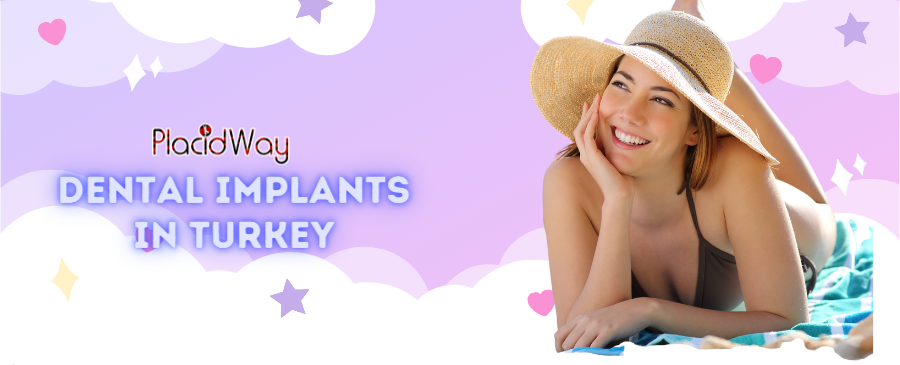

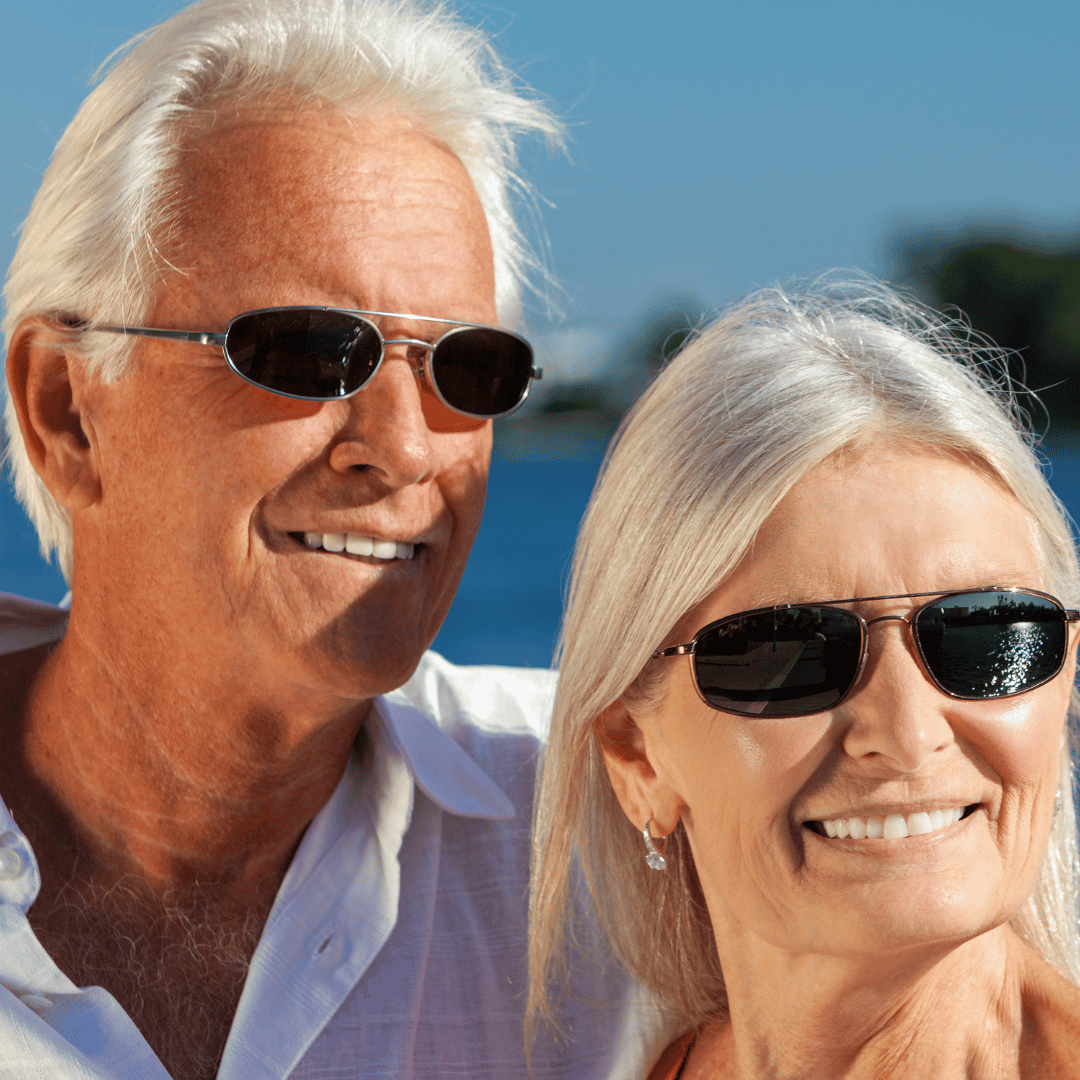
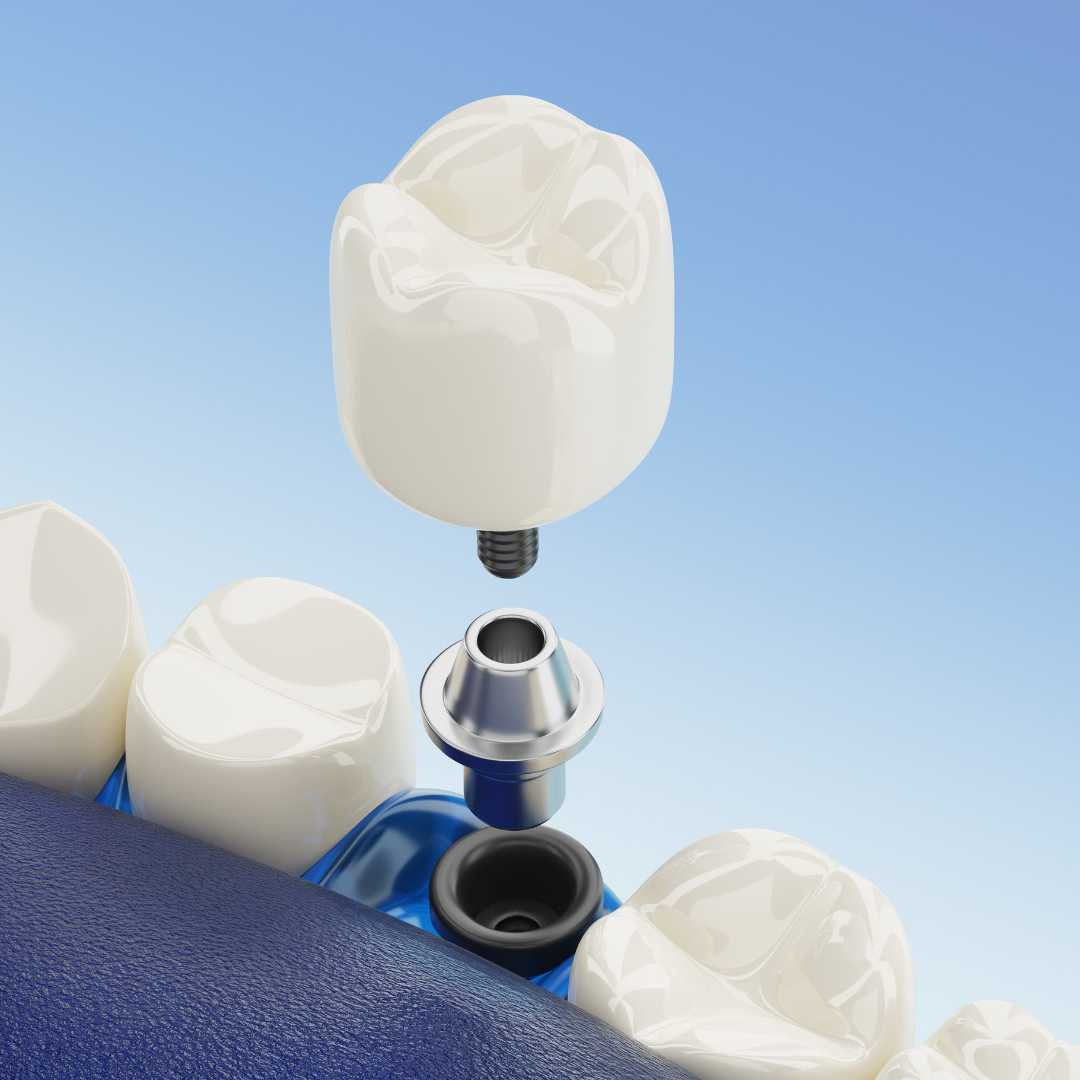





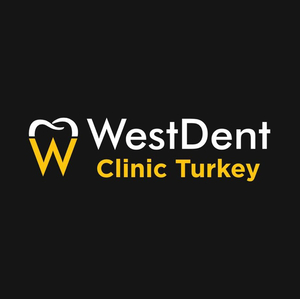


.png)







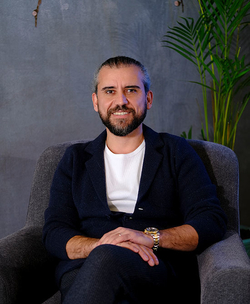
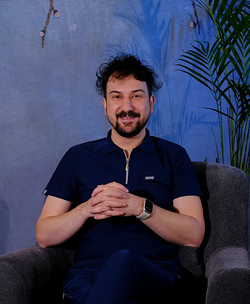


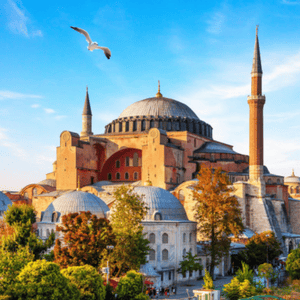
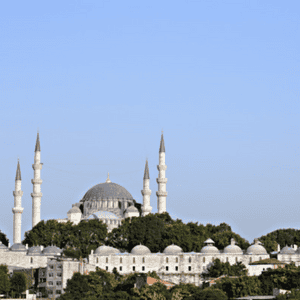






.png)
.png)
.png)


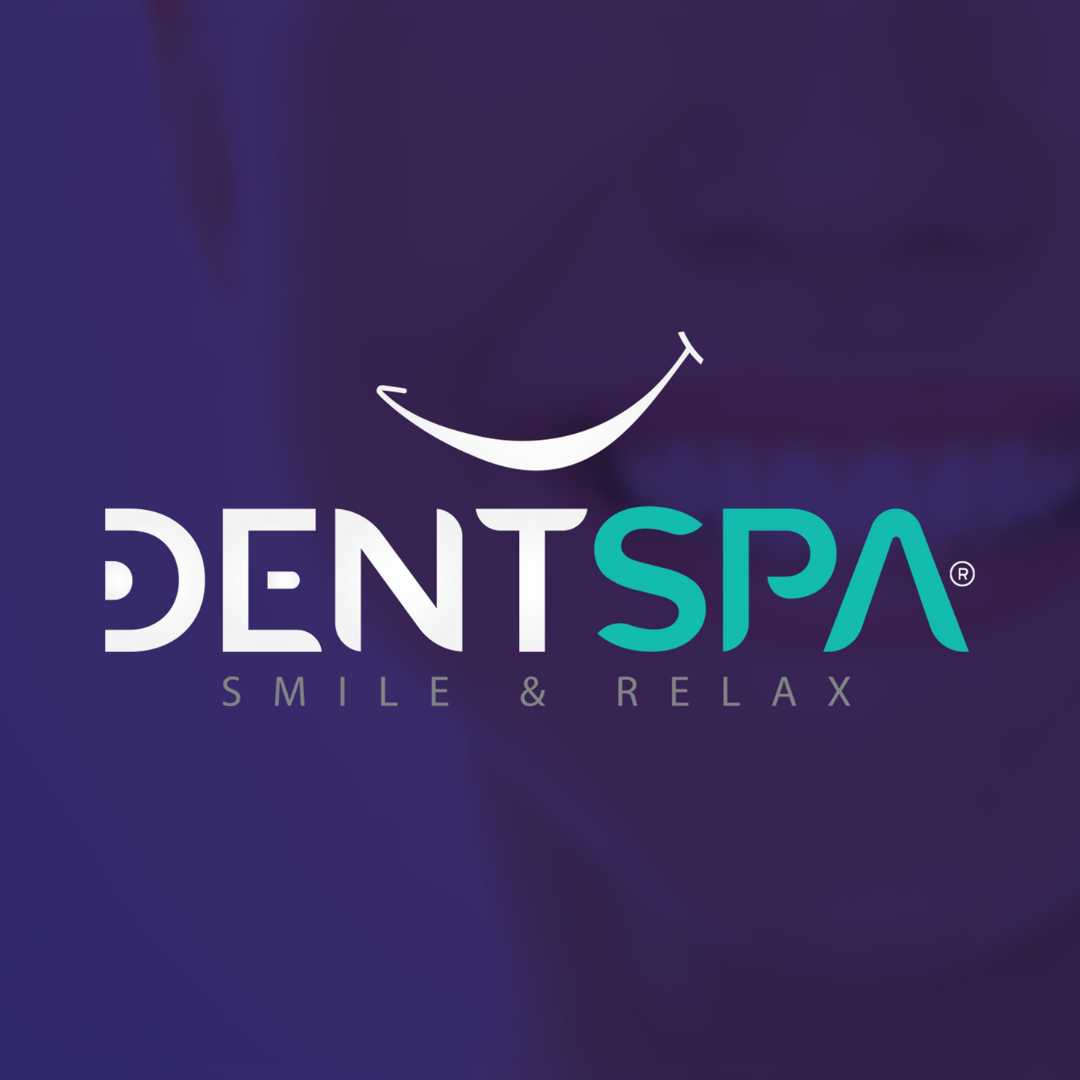

.png)
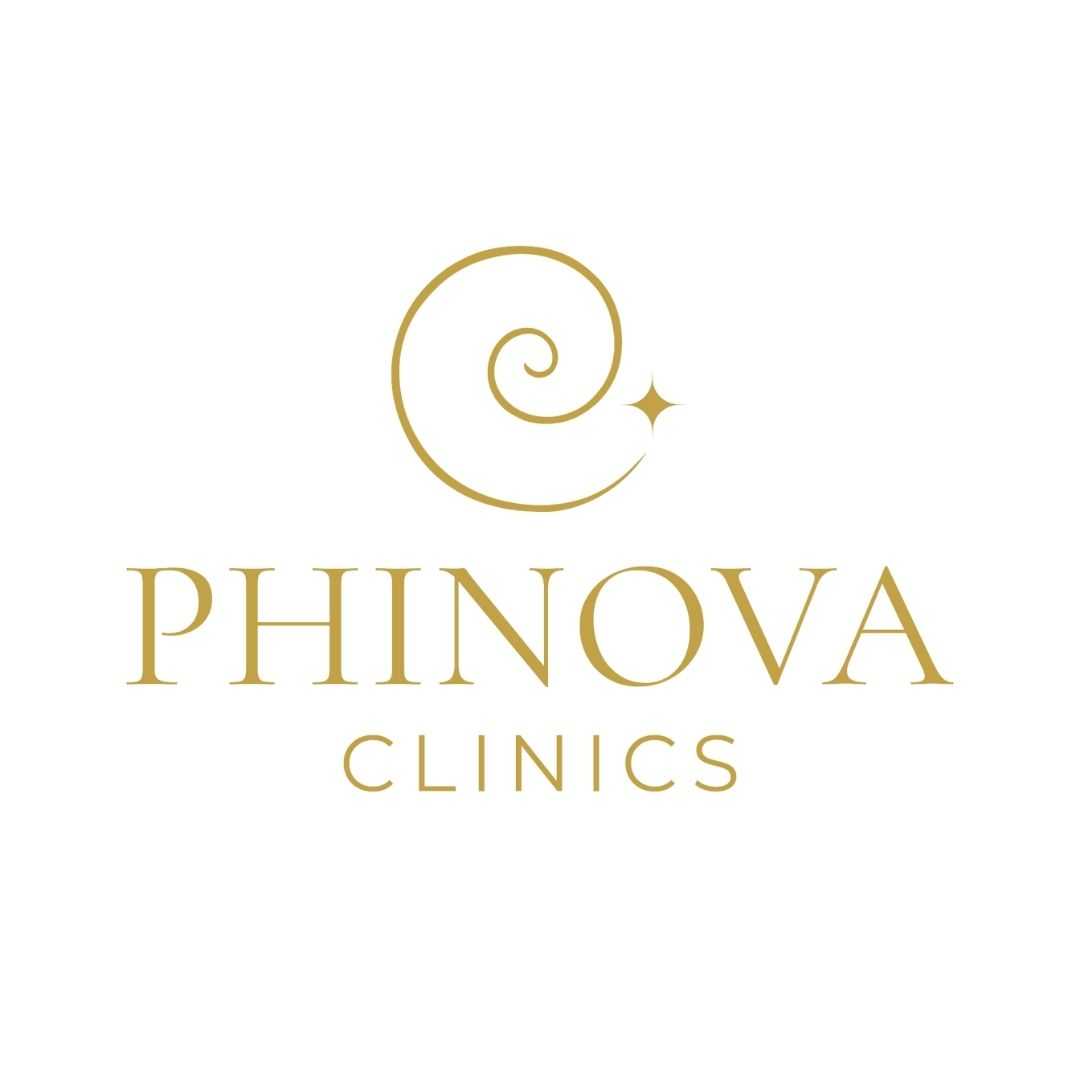

Share this listing